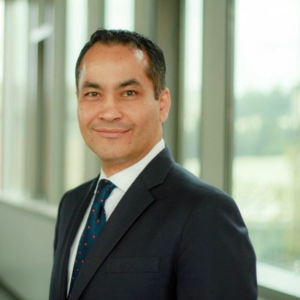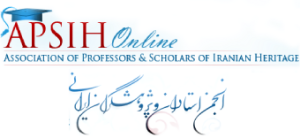Dr. Ali Khademhosseini:
 Ali Khademhosseinii s the Professor of Bioengineering, Chemical, and Biomolecular Engineering, and Radiology at the University of California-Los Angeles (UCLA). He received his Ph.D. in bioengineering from MIT (2005), and MASc (2001) and BASc (1999) degrees from the University of Toronto both in chemical engineering. He is currently the Founding Director of the Center for Minimally Invasive Therapeutics at UCLA as well as an Associate Director of the California NanoSystems Institute.
Ali Khademhosseinii s the Professor of Bioengineering, Chemical, and Biomolecular Engineering, and Radiology at the University of California-Los Angeles (UCLA). He received his Ph.D. in bioengineering from MIT (2005), and MASc (2001) and BASc (1999) degrees from the University of Toronto both in chemical engineering. He is currently the Founding Director of the Center for Minimally Invasive Therapeutics at UCLA as well as an Associate Director of the California NanoSystems Institute.He joined UCLA in Nov. 2017 from Harvard University where he was a Professor of Medicine at Harvard Medical School (HMS) where he directed the Biomaterials Innovation Research Center (BIRC), a leading initiative in making engineered biomedical materials. He is recognized as a leader in combining micro- and nano-engineering approaches with advanced biomaterials for regenerative medicine applications. He has authored about 500 journal papers and 60 books/chapters.
Dr. Khademhosseini’s interdisciplinary research has been recognized by over 40 major national and international awards. He is a recipient of the Presidential Early Career Award for Scientists and Engineers, the highest honor given by the US government for early career investigators. In 2011, he received the Pioneers of Miniaturization Prize from the Royal Society of Chemistry (RSC) for his contribution to microscale tissue engineering and microfluidics. In 2016, he received the Sr. Scientist Award of the Tissue Engineering and Regenerative Medicine Society-Americas Chapter (TERMIS-AM) and in 2017 he received the Clemson Award of the Society for Biomaterials.
He is also a fellow of the American Institute of Medical and Biological Engineering (AIMBE), Biomedical Engineering Society (BMES), Royal Society of Chemistry (RSC), Fellow of the Biomaterials Sciences and Engineering (FBSE) and American Association for the Advancement of Science (AAAS). Currently he serves on the editorial board of numerous leading journals as well as an Associate Editor for ACS Nano (Impact Factor: 13.3) and a member of NIH BTSS study section.
